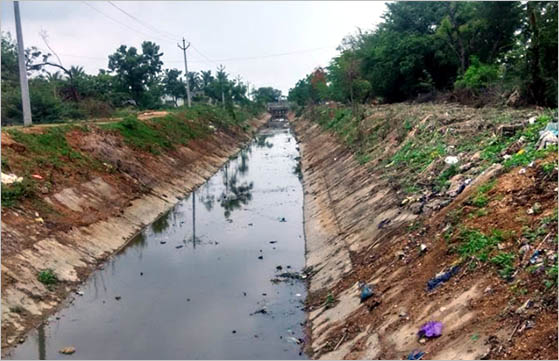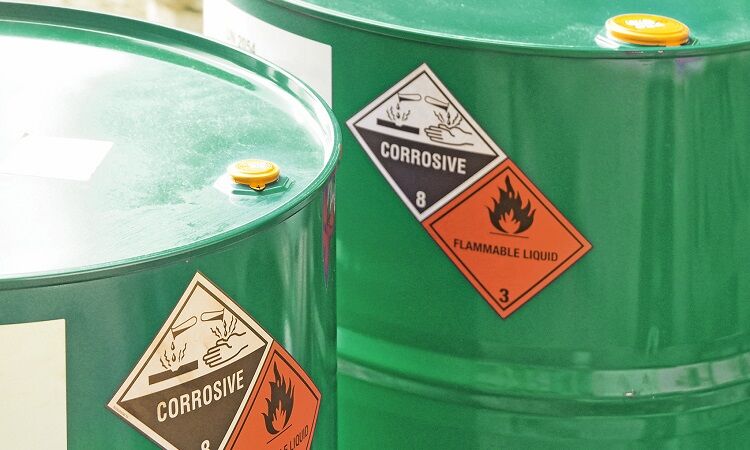Comprehending the Comprehensive Refine of Liquid Garbage Disposal: Best Practices and Environmental Influence Considerations
The management of fluid waste disposal is a multifaceted issue that needs an extensive understanding of various ideal methods and their linked ecological impacts. From the types of liquid waste produced to the techniques utilized for collection, therapy, and final disposal, each action plays an important role in guarding ecological communities and public health and wellness.
Kinds of Fluid Waste
Understanding the numerous kinds of liquid waste is vital for effective management and disposal practices. Liquid waste can be extensively classified right into numerous types, each calling for unique handling and treatment techniques.
Industrial fluid waste frequently has harmful products, including heavy metals, solvents, and chemicals, generated during making processes. These wastes demand stringent regulative compliance to secure human health and wellness and the atmosphere. Residential liquid waste mainly describes wastewater produced from homes, including sewer and greywater, which, although less harmful, can still pose substantial risks if poorly taken care of.
Agricultural fluid waste, including overflow from ranches, typically has fertilizers and chemicals that can bring about ecological degradation otherwise dealt with adequately. Medical fluid waste, generated from health care centers, consists of polluted fluids such as physical fluids and chemicals, calling for specialized disposal approaches to prevent infection and environmental contamination.
Lastly, oil and oil waste, commonly generated by dining establishments and vehicle markets, can trigger serious blockages in sewage system systems otherwise taken care of correctly. Understanding these categories assists in targeted techniques for therapy, compliance with regulations, and efficient disposal techniques, eventually advertising environmental sustainability and public health security.

Collection Approaches
Efficient collection techniques are important for the appropriate management of liquid waste, making certain that it is collected securely and successfully prior to therapy or disposal. Different methods are used relying on the sort of fluid waste generated, the quantity, and the specific characteristics of the waste.
One typical technique is using committed collection storage tanks or sumps, which are developed to catch liquid waste at the source. These systems frequently include pumps that promote the transfer of waste to larger storage containers or therapy facilities. Additionally, mobile collection units outfitted with vacuum modern technology are employed in situations where waste is created periodically or in hard-to-reach locations.
For industrial setups, closed-loop systems can effectively decrease leaks and spills, permitting for the recovery and reuse of liquid waste. It is likewise vital to train employees on proper collection methods to alleviate dangers linked with dangerous materials.
In addition, carrying out routine maintenance schedules for collection equipment guarantees optimal efficiency and safety and security. The integration of sophisticated tracking systems can improve collection performance by providing real-time data on waste levels and prospective dangers. Overall, effective collection methods are fundamental to lasting fluid waste monitoring techniques.
Therapy Procedures
Therapy procedures play a vital duty in the monitoring of fluid waste, changing potentially unsafe products right into safe effluents or multiple-use sources - liquid waste disposal. These procedures can be generally categorized right into physical, chemical, and biological methods, each customized to address particular contaminants existing in the waste stream
Physical therapy approaches, such as sedimentation and purification, work by eliminating put on hold solids and particulate issue. These methods are usually the initial step in the treatment chain, successfully reducing the tons on succeeding procedures. Chemical treatments include using reagents to neutralize hazardous substances, site speed up heavy steels, or oxidize natural toxins, therefore boosting the security of the effluent.
Organic therapy procedures, consisting of triggered sludge systems and anaerobic digestion, utilize on the natural capacities of microbes to degrade organic matter. These approaches are specifically efficient for wastewater including biodegradable contaminants. Advanced therapy innovations, such as membrane purification and progressed oxidation procedures, are progressively used to attain greater levels of filtration.
Incorporating a combination of these treatment techniques not just ensures compliance with governing requirements however also promotes ecological sustainability by recuperating valuable resources from fluid waste.
Disposal Options
Just how can organizations make certain the safe and responsible disposal of fluid waste? Reliable disposal alternatives are critical for safeguarding public health and the environment. The key approaches consist of land incineration, treatment, and disposal complied with by discharge into municipal wastewater systems.
Land disposal entails the cautious control of fluid waste in assigned garbage dumps, guaranteeing that it does not seep right into bordering soil or water. Incineration, on the various other hand, subjects liquid waste to heats, transforming it right into ash and gases, which call for correct filtration to reduce exhausts. This approach is appropriate for contaminateds materials that can not be dealt with with traditional means.
In instances where fluid waste can be dealt with, companies might choose for biological or chemical therapy processes to counteract harmful components before releasing the treated effluent right into local systems. This path normally straightens with governing needs, ensuring that the effluent fulfills safety criteria.
Eventually, organizations must perform thorough analyses of each disposal option to establish its viability, taking into consideration aspects such as waste composition, regulatory conformity, and possible dangers to health and the atmosphere. By selecting appropriate disposal techniques, companies can add to an accountable waste monitoring technique.
Ecological Impact
The environmental effect of liquid waste disposal is a critical factor to consider for companies looking for to decrease their environmental impact. Furthermore, the discharge of untreated or improperly treated waste into surface area waters his response can result in eutrophication, leading to oxygen exhaustion and the succeeding death of fish and various you can try this out other microorganisms.

To minimize these influences, companies have to take on ideal practices such as carrying out extensive waste treatment procedures, advertising recycling and reuse, and sticking to regulative criteria. By taking an aggressive approach to liquid waste management, entities can significantly reduce their environmental impact while supporting sustainable growth objectives. Eventually, a thorough understanding of the ecological effects related to fluid garbage disposal is essential for educated decision-making and responsible stewardship of natural sources.
Final Thought
Effective monitoring of fluid waste is vital for safeguarding environmental honesty and public wellness. Ultimately, a thorough understanding of liquid waste disposal not just mitigates ecological impacts however likewise cultivates a dedication to responsible resource administration and ecological stewardship.
The management of fluid waste disposal is a diverse issue that requires a complete understanding of numerous ideal techniques and their connected ecological influences. From the kinds of liquid waste produced to the approaches used for collection, therapy, and last disposal, each step plays a crucial role in securing ecological communities and public health and wellness.The ecological influence of liquid waste disposal is a vital consideration for companies seeking to minimize their environmental impact. Inevitably, a detailed understanding of the ecological effects connected with fluid waste disposal is crucial for informed decision-making and responsible stewardship of natural sources.
Ultimately, a comprehensive understanding of fluid waste disposal not only reduces environmental effects but also fosters a commitment to responsible source management and environmental stewardship.